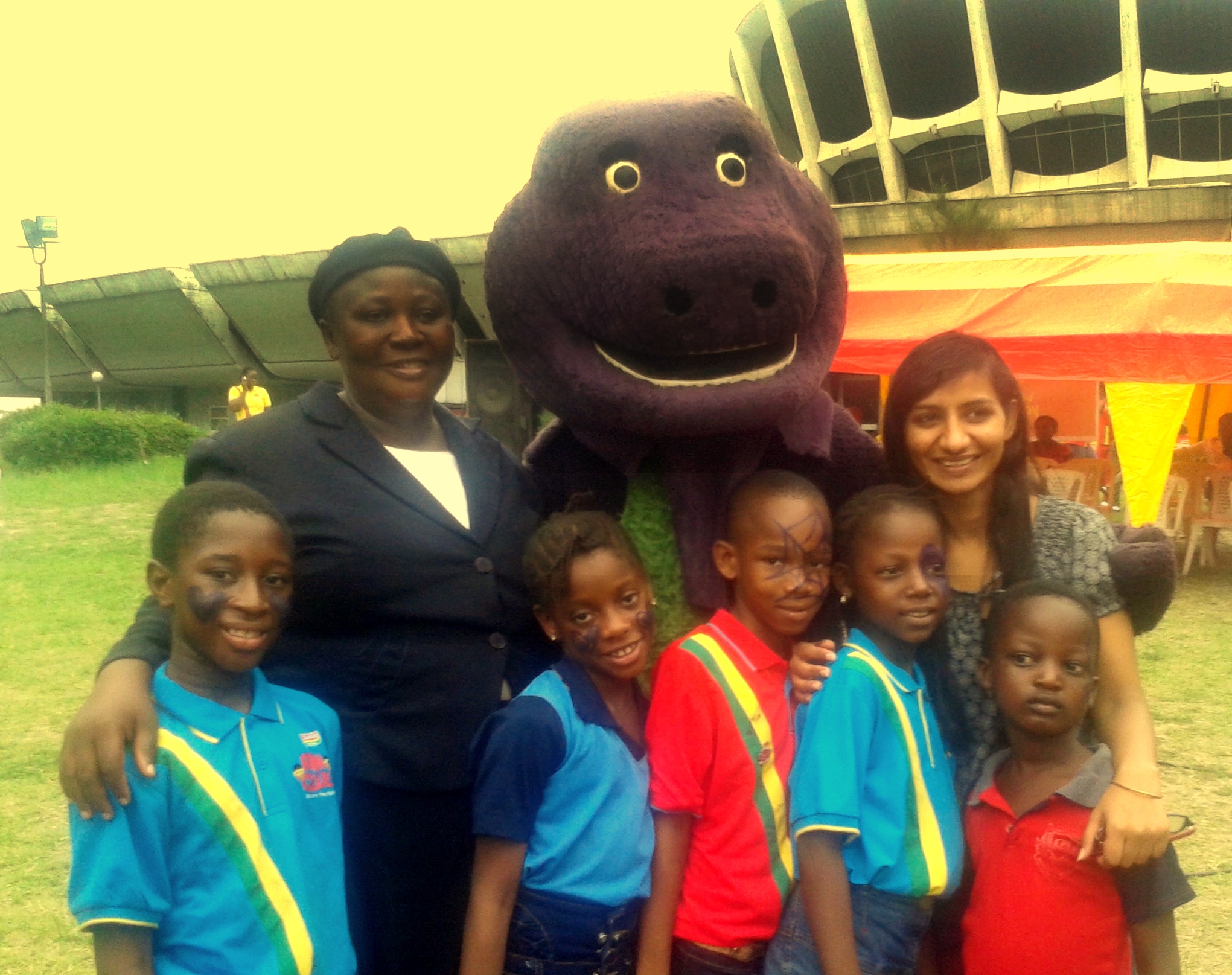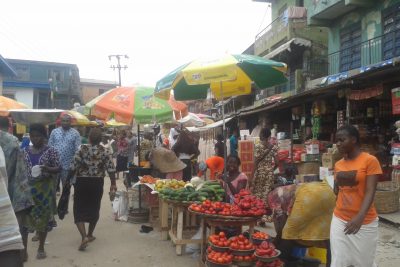“How was the interview?”, “Has she got placed?”, “Damn, I screwed it!”, “I am keeping my fingers crossed.”

Among all these voices during placement-season, I was talking to my mother on phone, “Maa, A company wants me to go to Nigeria for internship. Will you let me go?”
A common perception is, if you are the only child of your parents, it is very unlikely that your parents will allow you to put your life in danger especially when the place is infamous for Ebola and Boko Haram.
The answer, for me, was expected. "GO WHEREVER YOU WANT."
And then started the teasing chapter and the negative images of Nigeria all around me. “You will die of Ebola. Don’t come back to India if you catch up Ebola. Aren’t you afraid? You will play with hungry kids there. How will you survive there?” And a plethora of other queries which made me shiver even thinking of it.
Well, after a wait of 6 days in April, the life-twisting day arrived when we had to fly for Lagos, Nigeria. Carrying my excitement on my face, when I along with another intern from IIFT reached Lagos, five other interns from prestigious B-schools were already staying in fully furnished beautiful flats in the building. To our surprise, African maids used to cook delicious Indian food and a car was always ready with a driver to take us anywhere we wanted to. Excitement reached one level up!
Next day, we headed towards our company, Tolaram Group. The induction and factory visits followed by the market visits were there in the checklist for the first day. We got an idea after our exhausting first day, task was not going to be the easier one!
Tolaram Group is a conglomerate in Nigeria and is market leader in several products. Everyone, among seven interns, got the projects in different companies. My project was to increase the usage of whitening bleach in Lagos which involved an extensive market research in SEC D and E. A study on consumer behaviour and usage pattern for the product was to be executed. The whitening bleach in Nigeria is used for purposes like whitening clothes, mopping floors and cleaning toilets.
I was excited for the challenging task but was shocked as well when I heard that all the 200 surveys were to be taken through direct interviews with target group as Nigeria has low internet penetration.

I was on my mission to take interviews of local people in the hot summers. One Nigerian employee accompanied me during the research for overcoming the English accent problem. Those 3-4 weeks of interaction proved to be the best learning phase in two months. Not only about the consumer behaviour and usage pattern of the product but also I keenly observed Nigerian culture.
No doubt, Nigeria is the most corrupted country in Africa having the highest population in the continent. But despite of being so notorious (credit goes to media!), it made me re-think on so many aspects of my life.
An entirely different economy than India, people in Nigeria are very lively and adventurous. THERE IS NO CONCEPT OF SAVINGS. Majority of the population is working (Both men and women!), and they spend their salary on luxurious things as if it’s their last day on the earth. Nigerians, on an average, have better level of education as compared to Indians but in contrast, without any ego, a post-graduate can sell vegetables in his/her shop in Nigeria.
The product, given to me, is the market leader in Nigeria. People prefer to buy sachets of bleach instead of bottles. They don’t save money to buy bottles tomorrow. They instead like to spend money on what they can get today. The task becomes difficult when you come to know about a new feature of the market. THERE IS NO MRP WRITTEN ON ANY OF THE PRODUCT in Nigeria. The retailers have the power to stabilize/destabilize the prices.
The management of the Tolaram Group included majority of Indian employees who treated each other more like family than colleagues. Whenever I made mistakes, I never faced flak as I knew that my mentors and other managers were there to guide me for further action. These were the people who would work really hard for making a brand name reach to the skies. At the same time, they would never leave a chance to party hard every weekend.
The beauty of the project was that you could implement anything you wanted to, if your mentors would approve your idea. I believe, implementation of ideas shows us real mirror and facilitates more learnings as compared to written recommendations on paper. Having presented my findings and analysis, I proposed around eight recommendations and got a chance to implement one idea, by my own, in remaining days of internship. I proposed a BTL activity for making consumers switch to bottles of bleach.
The modes of communications in Nigeria are very selective and sensitive. As newspaper is very expensive, people generally prefer Radios and TVs. The BTL activities are the preferred mode of communication since they create a long lasting impact on local population. Nigerians love music and dance. The impact of activity is higher when people come across creative campaigns with dance and music in it. My activity was a quizzing event which involved a lot of audience engagement through music and dance.
After the implementation, it was clear that TAKING AN IDEA FROM PAPER TO MARKET IS NOT AN EASY JOB. There are so many other things which we don’t consider while proposing but these will be there, for sure, when you make that idea alive. The outcome of the activity was satisfactory but the long term impact is yet to be seen.
On the D-day, CEO and the other top managers assembled for the final review of our projects. After the happy endings of all projects, Mr. Deepak Singhal, CEO, asked us, “Was it the same Nigeria, you thought about?” None of us could answer that question immediately. A clear comparison from flashback started emerging in my mind.
How people in India were worried about Ebola and how I roamed freely in the markets here, among people making fun of our fear of Ebola.
How people back in my institute made fun of poverty of Nigerians and how come I never saw a Nigerian riding on bike or begging (Nigerians are fond of luxury cars, be it second hand!)
How I considered Nigerians to be aggressive and how I learnt to first greet people before starting a conversation.
How I used to think Nigerians can even murder for money (Some, yes! But isn’t it similar in every country?) And how that Nigerian guy came from nowhere and paid for us when we were short of cash.
Having contemplated everything, I replied without any delay, “It’s not the one we thought about. We are glad that we had this differentiating factor in our internship. People write in their CVs that they are risk takers, we proved it. We are going to take back a lot of learnings with us.”
That was not just an internship. That was a LIFETIME EXPERIENCE.




